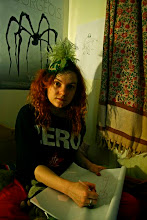I set myself the task of integrating my intuitive drawing practice with programming via an exploration of the ancient game of Go. The results of these processes have been rich and here I hope to summarise them. For me, programming is still painstaking and slow with limited visibilty of the way ahead, I am learning my way for the first time and progress is anything but intuitive. I feel my way, testing as I go and assessing each new situation as empirically as I can with digital subject matter. The preexisting structure of the game of Go has space for intuition built into it and so out of rigid structure it produces complexity, infinite outcomes. With this in mind I force myself to understand the practicalities of its simplicity for the sake of building this instance of it, so I can play with it and thereby learn.
As I struggle with programming booleans and tidying up loops I am also presented with theoretical problems. I am concerned that i am guilty of cultural piracy, utilising another culture's
artefacts in my own way, never having been and witnessed them in action, in context. I wonder why I am drawn to these things, to Go, to Origami, to the I Ching, why do I want to work with them? As Carl Jung disarmingly states in his Foreword to Richard Wilhelm's translation of the I Ching (a mathematical technology at least as old as Go and originating in the same culture ) "Since I am not a Sinologue, a foreword to the Book Of Changes (the I Ching) from my hand must be a testimonial of my individual experience with this great and singular book". I must make the same claim for this work. I was drawn to Go as a formal construct and as such I have explored it in my own way. Cultural context is of enormous value in helping to understand it but for that in this instance I have relied heavily on the experience of experts d such as Richard Wilhelm and Oscar Korschelt to provide me with it. I hope this is something that can be remedied in the future with firsthand experience and research in China and Japan. It is a testament to the strength of these cultures that they have created lasting, essentially mathematical structures which can in some way transcend cultural difference and be appreciated as forms outside of language.
As Alain Badiou sets out to prove, mathematics has this brilliant ability to describe things before or outside of language or philosophy; as he puts it "Ontology is Mathematics". In his collected "Theoretical Writings" edited by Ray Brassier and Alberto Toscano he describes 'being' as best described by itself and that it does so using mathematics not language. Describing his ontology he says, "philosophy must enter into logic via mathematics, not into mathematics via logic". It is this function of Go as a mathematical construct and the facility of programming to explore such constructs in which I am interested in this work. I am learning to program, I am learning to play Go and from this, with space left for the intuition I know well from my drawings come patterns, come signal outcomes which I can use to facilitate further development as a programmer-artist.
23.3.10
Subscribe to:
Post Comments (Atom)


1 comment:
...i'd guess from your writing that you must have encountered Conway's Game of Life, but on the off chance you haven't i thought i'd mention it. I sometimes wonder if the stones on the Go board are gonna take off and replicate their way across the room and out the door (animation by Blu, obviously).
Love the idea of cultural piracy! Although context is usually vital to some form of understanding, too much cultural ident along with the philosophy, and you can't see the wood for the trees. The concepts sometimes need to be 'translated' as well as the language. I'm sure the i ching will forgive you if you pull that off!
Anyway, i'm jibbering! If you ever produce anything externally based on this, i'm sure i'd be interested...
laters,
zp.
Post a Comment